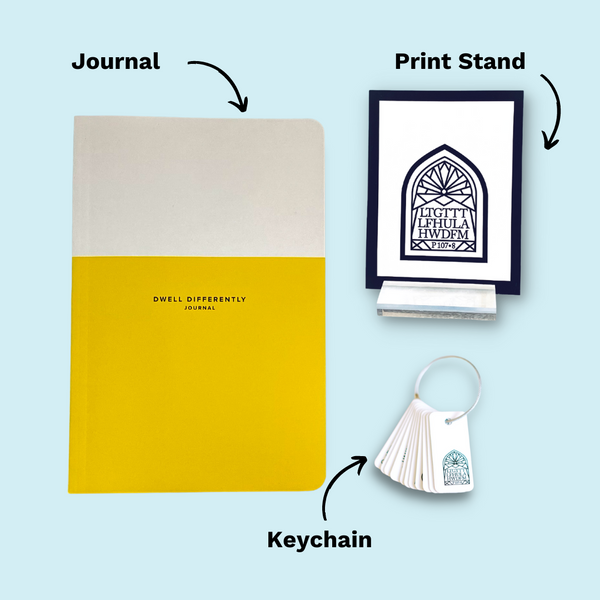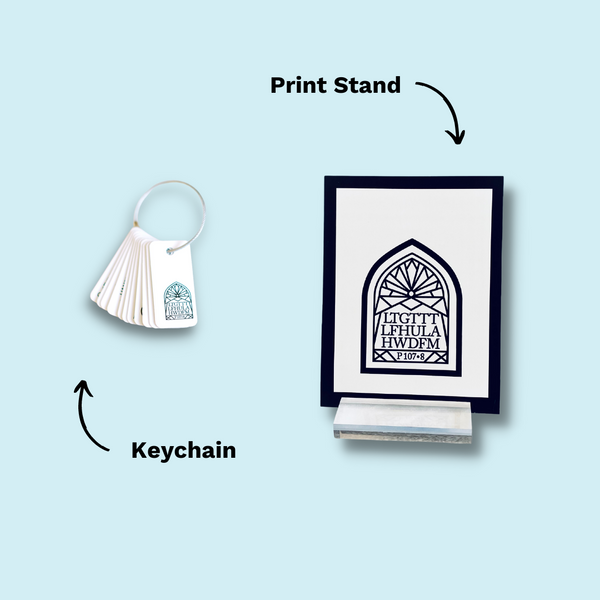HE MUST BECOME GREATER; I MUST BECOME LESS. — JOHN 3:30
“It’s one thing to be willing to die for Jesus, but are you willing to live for him?”
My husband and I were at our weekly meeting with our missions pastor. We were newly married and planning to head overseas to the mission field. Our pastor met with us every Tuesday night to study the Bible, pray with us, and disciple us, that we might be ready to “Therefore go and make disciples of all nations, baptizing them in the name of the Father and of the Son and of the Holy Spirit” (Matthew 28:19).
There was a good possibility that we were going to be assigned to a global hotspot—a location just miles from a despotic ruler with an unpredictable temper. After wrestling in prayer and shedding some tears, we had pronounced we were ready to go wherever we were sent. We were willing to die for Jesus.
“But are you willing to live for him?” our pastor pressed us. He knew there was something arguably more dangerous and more probable ahead: the greatest risk in both life and missions would be us living for ourselves, not dying for Jesus.
The real wrestling should not have been whether we were willing to die, but whether—day in and day out, in a hundred different humble and unnoticeable and inglorious ways—we were willing to live for Jesus.
Our pastor rightly wondered if we were ready to make the same commitment as John the Baptist: “He must become greater; I must become less” (John 3:30). It was all well and good that we were ready to honor the Lord in martyrdom, but would we magnify him in the mundane? Would we make Jesus greater and ourselves less both at home and abroad?
One Quarter at a Time
A gifted preacher once put it like this:
"We think giving our all to the Lord is like taking a $1,000 bill and laying it on the table—'Here's my life, Lord. I'm giving it all.' But the reality for most of us is that he sends us to the bank and has us cash in the $1,000 for quarters. We go through life putting out 25 cents here and 50 cents there. Listen to the neighbor kid's troubles instead of saying, 'Get lost.' Go to a committee meeting. Give up a cup of water to a shaky old man in a nursing home. Usually giving our life to Christ isn't glorious. It's done in all those little acts of love, 25 cents at a time. It would be easy to go out in a flash of glory; it's harder to live the Christian life little by little over the long haul."*
Becoming Less Leads to Joy
Our flesh and our culture tell us we need to increase if we want to be happy and successful. We need to build a name for ourselves, a good reputation, a solid brand. We hear messages all day long from both our surroundings and ourselves that we will be more satisfied if we exalt ourselves.
We all inevitably learn, though, that increasing ourselves is not as satisfying as we thought it would be. I have personally experienced exalting myself, only to be left with a bad taste in my mouth. Or sometimes that exaltation doesn’t feel like enough—I want more accolades. Or sometimes an embarrassing fall happened soon thereafter, and I quickly remembered, "Pride goes before destruction, a haughty spirit before a fall” (Proverbs 16:18).
You and I were made by God and for God (Colossians 1:16). David says what’s true in the psalms, “You make known to me the path of life; in your presence there is fullness of joy; at your right hand are pleasures forevermore” (Psalm 16:11). We were made to find joy by abiding in the Lord, not ourselves, and there simply is no other way.
When John the Baptist proclaimed Jesus must become greater and John must become less, he was not only proclaiming what’s true and real, but also the recipe for joy for all humankind. The counterintuitive truth is that real joy is found when we become less. That’s how we were made. To seek the reverse is to seek our own demise.
It’s a Posture of the Heart
Our pastor was right: life at home and abroad is far more often mundane than exciting. For every moment of adventure, there are a thousand more that are quiet and, frankly, boring.
Most days are dishes and diapers, cooking and cleaning, desk work and dirty work. Much of life is caring for others, pouring ourselves out, doing the next right thing in our homes, classrooms, and offices. What might it look like in these daily tasks to seek the glory of Jesus instead of our own? How might you and I honor the Lord, make him great, and make ourselves less?
Making Jesus great and ourselves less is a posture of the heart. It begins with believing and remembering that the God of the universe came down, humbled himself, and willingly rescued you and me, while we were his enemies (Philippians 2:1-11, Romans 5:6-11). When we remember that Jesus did not deserve the life and death he freely gave on our behalf, we set our hearts in a posture that’s willing to live for others and die to ourselves.
When we die to ourselves, we walk in the footsteps of our Savior, and we put him on display—we make him great and we make ourselves less. This is the path of life. This is where the fullness of joy is found.
That night in our pastor’s office he closed our meeting with this, “Don’t ask the Lord to send you anywhere to do anything over there that you’re not already doing right here.” You and I may believe and say we’re willing to lay down that $1,000 check. But the proof is in our daily $0.25 payments.
____________________________
* Fred Craddock, preacher and author




